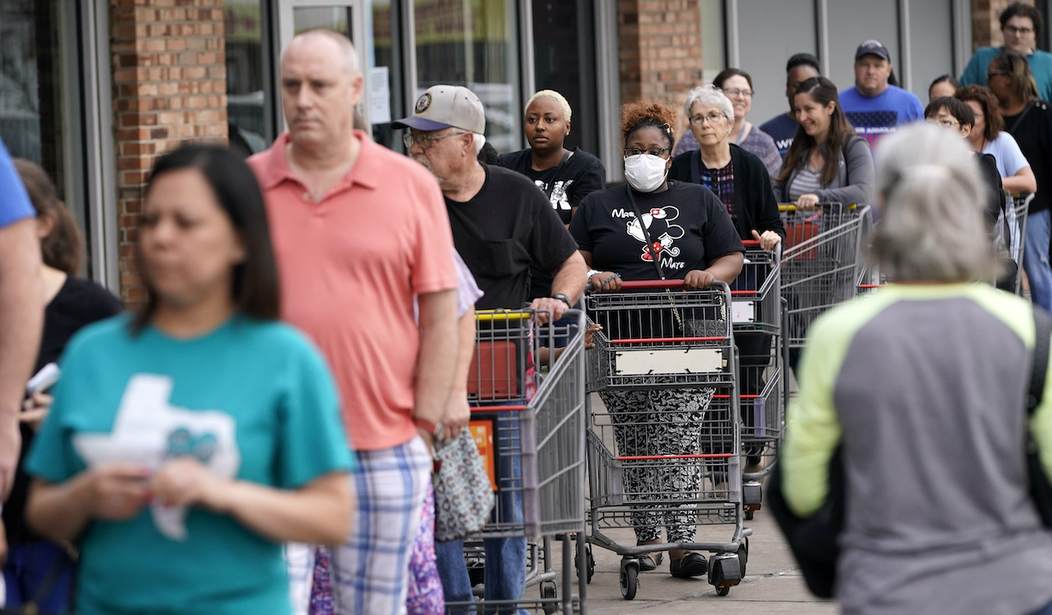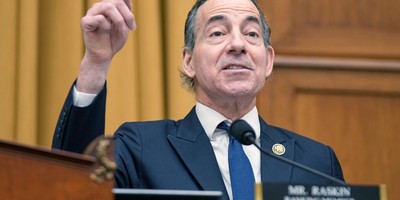As the military crisis in Eastern and Central Europe widens, America is facing a major economic crisis here at home, an economic crisis that was forming before Russia’s invasion of Ukraine, but has only deepened in the weeks since. As inflation skyrockets and the US government takes drastic steps to stem the tide of rising prices for consumers, there has never been a more appropriate time to ensure America’s food producers are protected.
If there was one thing we learned from the Covid-era global supply chain crisis, it’s that Americans have become particularly vulnerable to interruptions in the delivery of goods from foreign ports to the American marketplace—and that the more we can produce at home, the better off American consumers are.
Beyond manufactured goods, we’re certainly seeing this in the petroleum marketplace (as we have also seen in the past). When America is forced to rely on oil from markets that are unstable (or from producers who actively hate the US), the price of oil skyrockets. But when America pushes to maximize its drilling for oil and natural gas, becomes a net-exporter, and approaches true energy independents, these markets stabilize.
Moreover, just as the US government can have a major impact in promoting or hampering that quest for energy independence, so it can when it comes to agricultural commodities as well.
We know that across the global agricultural marketplace, both our friendly competitors and our out-and-out enemies (and nations all across that spectrum) are working hard to undermine America’s agricultural sector—both via creating regulatory regimes that can undercut US production costs, as well as via direct subsidies to their farmers and farming sectors that are designed to render US farming products fundamentally uncompetitive (and thereby crippling American farmers).
Recommended
As recently as December of 2021, the World Trade Organization ruled that India’s system of sugar subsidies violated the commitments that nation had made to ensuring a more-fair approach to trade, this as a result of a complaint filed with the WTO by Australia, Brazil and Guatemala. The WTO found that India had gone far beyond what was agreed to in earlier settled negotiations, and that their system of export subsidies violated two separate provisions of that agreement, both on Agriculture itself, as well as an agreement on Subsidies and Countervailing measures.
All supporters of free and fair trade agree that it would be wonderful if we could live in a world that was totally free of subsidies—and most agree that the use of massive subsidies is a way of waging economic warfare on a nation’s competitors.
But we have to live in the real world—and the realities of that real world are brought into sharp relief as the world’s crises become more inflamed. There are many roads to Utopia, as the saying goes, but all must traverse the surface of the Earth.
This is why legislation like last year’s so-called “Fair Sugar Policy Act” is so problematic. This legislation, sponsored in the Senate by Senators Jeanne Shaheen (D-NH) and Pat Toomey (R-PA) and in the House by Representatives Danny Davis (D-IL) and Virginia Foxx (R-NC), while well-intentioned, functions in an unrealistic view of global trade policy, calling for the United States to dismantle vital policies that serve to secure key sectors of American agriculture.
In contrast, at roughly the same time the FSPA was being introduced, Representative Kat Cammack (R-FL), along with her colleague Dan Kildee (D-MI), introduced the bipartisan “Zero-for-Zero” legislation. Zero-for-Zero represents the aspirational nature of desiring to create a world in which massive subsidization of industries by competing nations eventually doesn’t exist, while recognizing that we have to live in a real world where foreign cronyism exists to gut American agribusiness. Until we’re able to get these other countries to stop engaging in anti-competitive practices, it would be foolhardy for us to raise a white flag of surrender.
We live in a world that seems to be growing more chaotic, more dangerous, by the minute. Long-time enemies are reigniting old conflicts, and taking actions that would have been unthinkable years, even months ago. Because of that chaos, now is the wrong time to make a fundamental change in our nation’s economic security policies, especially when it comes to trade. Policies like the FSPA are a step in the wrong direction, while legislation like Zero-for-Zero promotes the security and stability Americans need.
Andrew Langer is President of the Institute for Liberty. He has a degree in International Relations.

























Join the conversation as a VIP Member